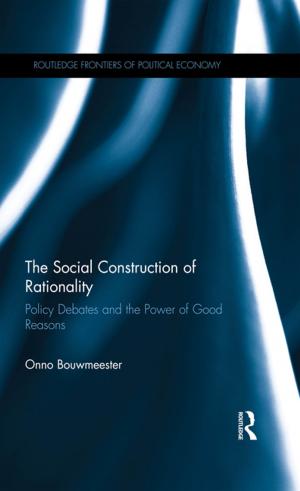The Developing World and State Education
Neoliberal Depredation and Egalitarian Alternatives
Nonfiction, Reference & Language, Education & Teaching, Educational Theory, Educational Reform, Higher Education| Author: | ISBN: | 9781135906375 | |
| Publisher: | Taylor and Francis | Publication: | January 13, 2009 |
| Imprint: | Routledge | Language: | English |
| Author: | |
| ISBN: | 9781135906375 |
| Publisher: | Taylor and Francis |
| Publication: | January 13, 2009 |
| Imprint: | Routledge |
| Language: | English |
Neoliberalism has had a major impact on schooling and education in the Developing World, with social repercussions that have affected the salaries of teachers, the number and type of potential students, the availability of education, the cost of education, and more. This edited collection argues that the privatization of public services and the capitalization and commodification of education have resulted in the establishment of competitive markets that are marked by selection, exclusion and inequality.
The contributors - academics and organization/social movement activists - examine aspects of neoliberal arguments focusing on low- and middle-income countries (including Chile, Mexico, Argentina, Venezuela, China, Pakistan, India, Turkey, Burkina Faso, Mozambique and South Africa), and suggest where they fall short. Their arguments center around the assumption that education is not a commodity to be bought and sold, as education and the capitalist market hold opposing goals, motivations, methods, and standards of excellence.
Neoliberalism has had a major impact on schooling and education in the Developing World, with social repercussions that have affected the salaries of teachers, the number and type of potential students, the availability of education, the cost of education, and more. This edited collection argues that the privatization of public services and the capitalization and commodification of education have resulted in the establishment of competitive markets that are marked by selection, exclusion and inequality.
The contributors - academics and organization/social movement activists - examine aspects of neoliberal arguments focusing on low- and middle-income countries (including Chile, Mexico, Argentina, Venezuela, China, Pakistan, India, Turkey, Burkina Faso, Mozambique and South Africa), and suggest where they fall short. Their arguments center around the assumption that education is not a commodity to be bought and sold, as education and the capitalist market hold opposing goals, motivations, methods, and standards of excellence.















